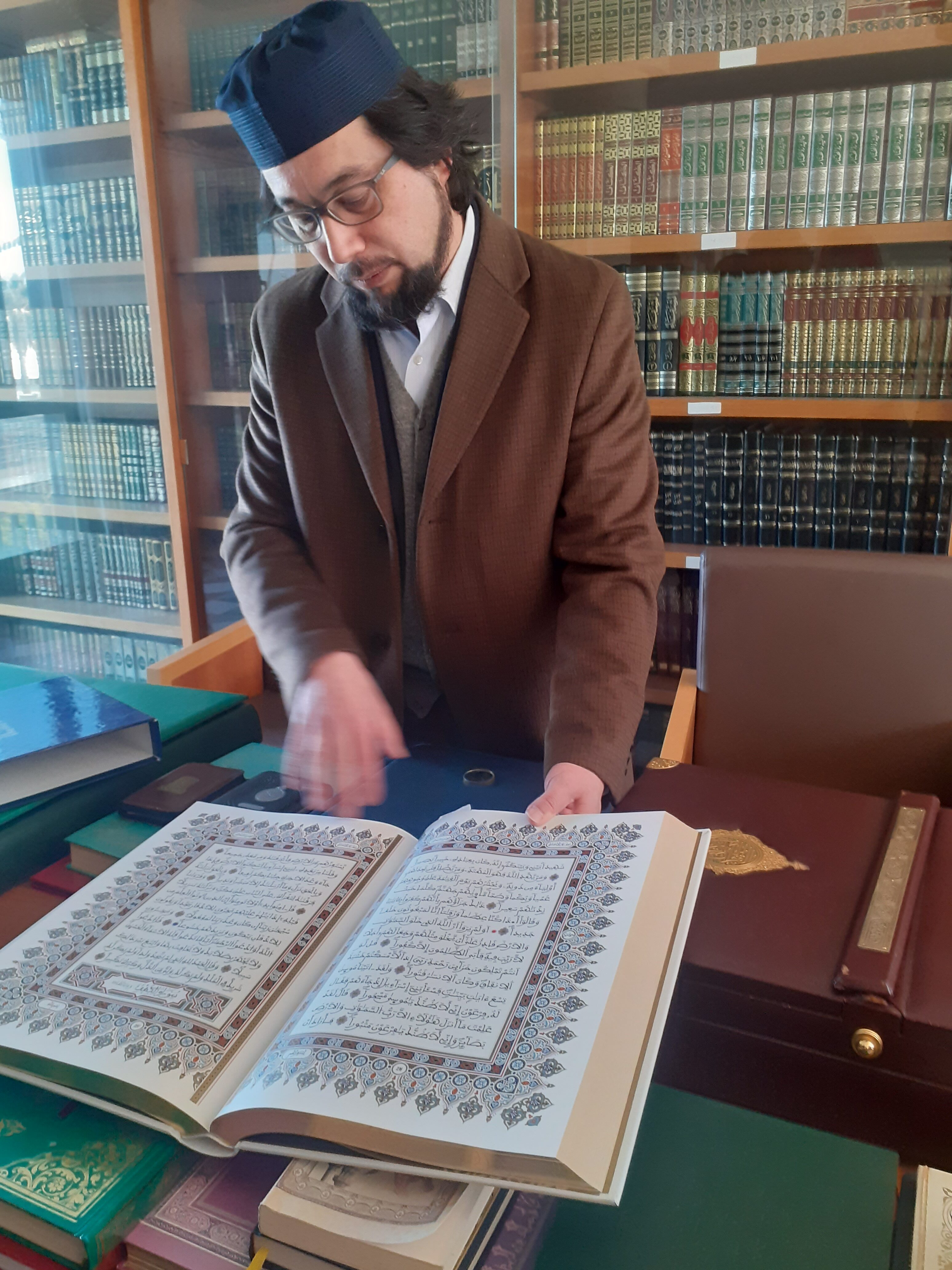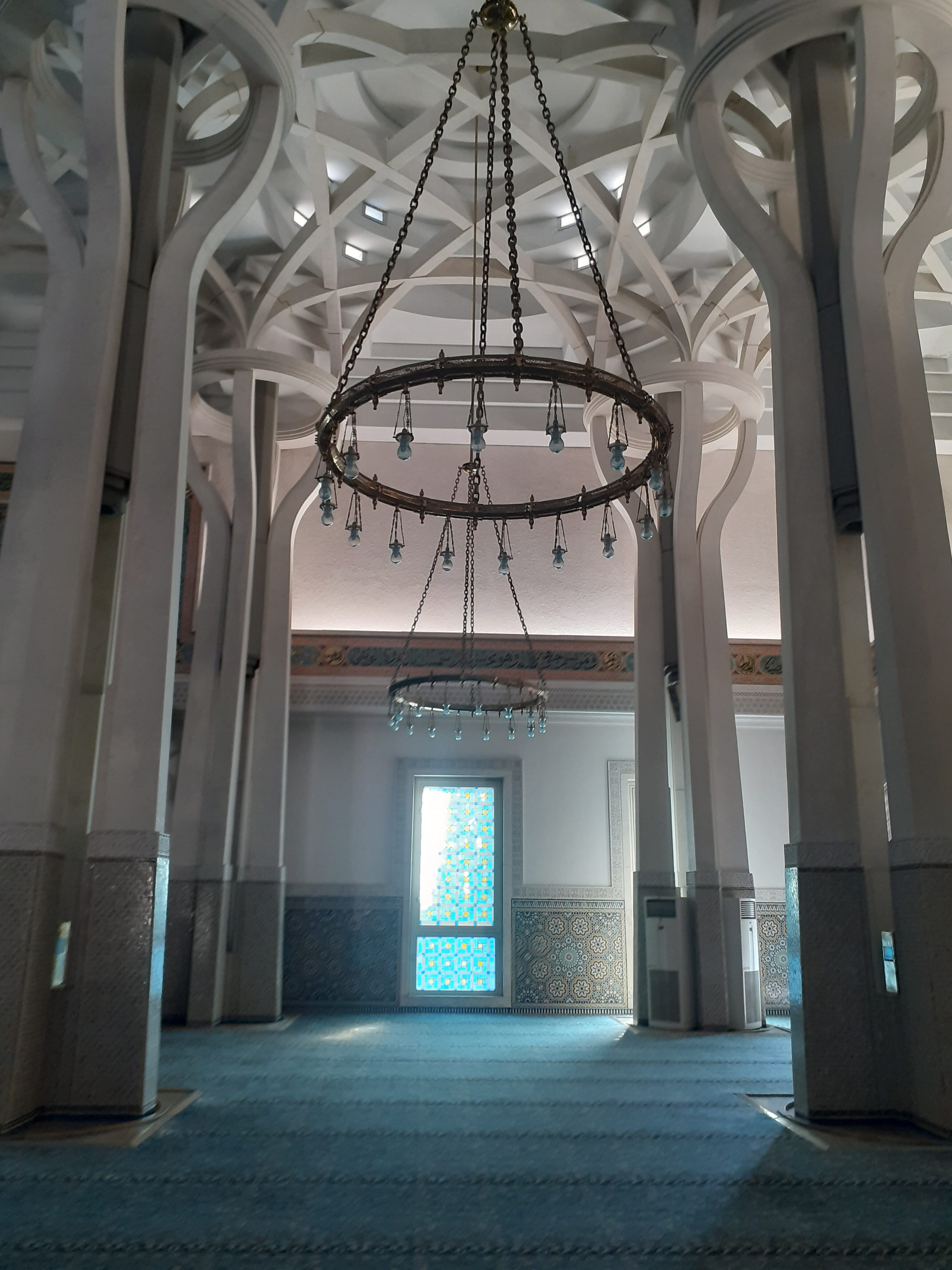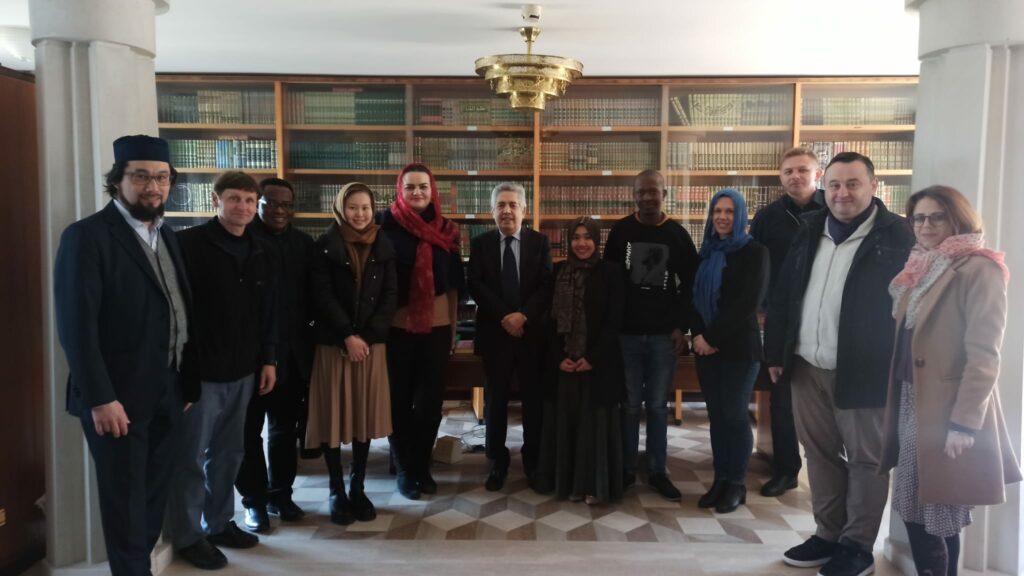The Great Mosque of Rome is an incredible place with a magnificent architecture. It is the biggest mosque in Italy and when it was built the largest one in Europe as well as the only official Islamic entity recognized by the Italian Government so far.
 |  |
Fellows of Cohort XIV enjoyed a full morning in this beautiful place of worship on March 23 guided by Imam Yahya Pallavicini, President of COREIS (Italian Islamic Religious Communities), one of the Muslim organizations in Italy.
Mosque is the translation of the word masjid in Arabic which is “the place where you perform sujud, meaning prosternation – explains Imam Pallavicini – which is the moment of the Islamic prayer where the highest part of your body touches the ground and acknowledges the majesty of your Lord.”
“This is the reason why we take off our shoes when we enter the mosque, because it’s the place where we adore God and this echoes the story of Moses who was asked to take off his sandals because he was approaching a sacred space,” continues Imam Pallavicini showing how practical gestures in Islam are linked to symbolic meanings.

Russell Berrie Fellows learnt a lot during the visit and had the chance of asking a variety of questions: from the internal organization of the Muslim community to the training of imams.
Time was then devoted to reading and discussing together in small groups the 2016 Marrakesh Declaration, a text signed by more than 250 Muslim religious leaders, heads of state, and scholars on the need of defending the rights of religious minorities in predominantly Muslim countries.
The group was then joined by the Secretary General of the Great Mosque and Italian Islamic Cultural Centre, Dr. Abdallah Redouane who sat with the Fellows for more than one hour answering questions and entering into a deep and meaningful conversation on the Declaration. The topics tackled were very diverse: from the need of education on religious diversity to the question of refugees and minorities, from the challenge of implementation of such important documents to the importance of the concept of citizenship.
The chance of visiting different places of worship and learn from scholars and religious leaders of that faith tradition always brings an important plus and open new perspectives in dialogue.
